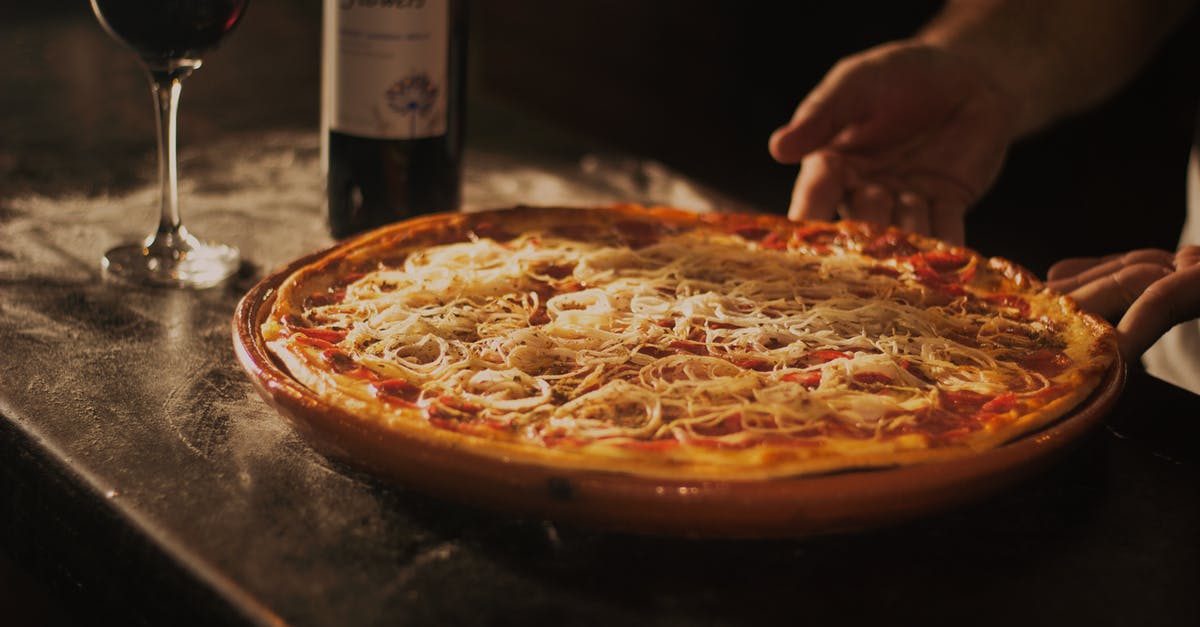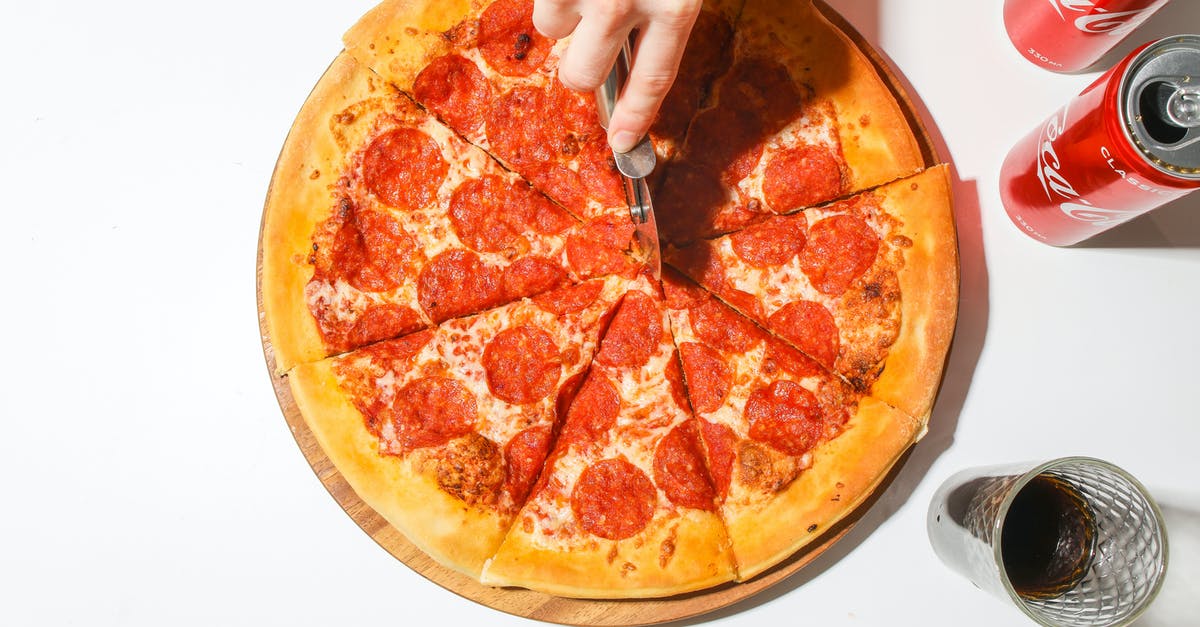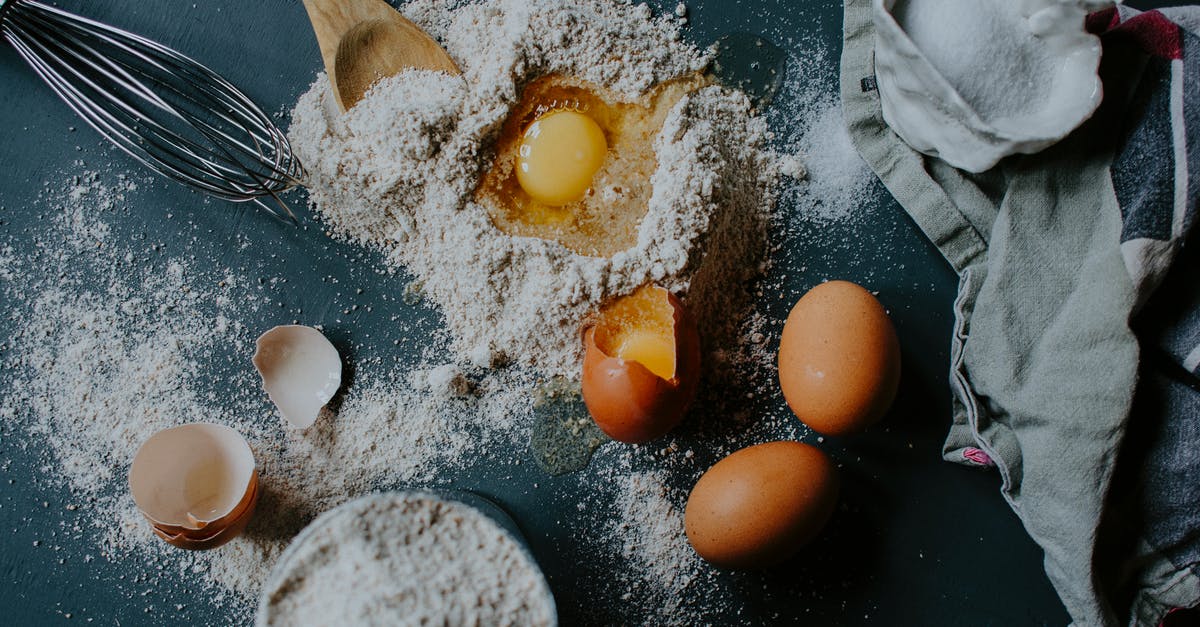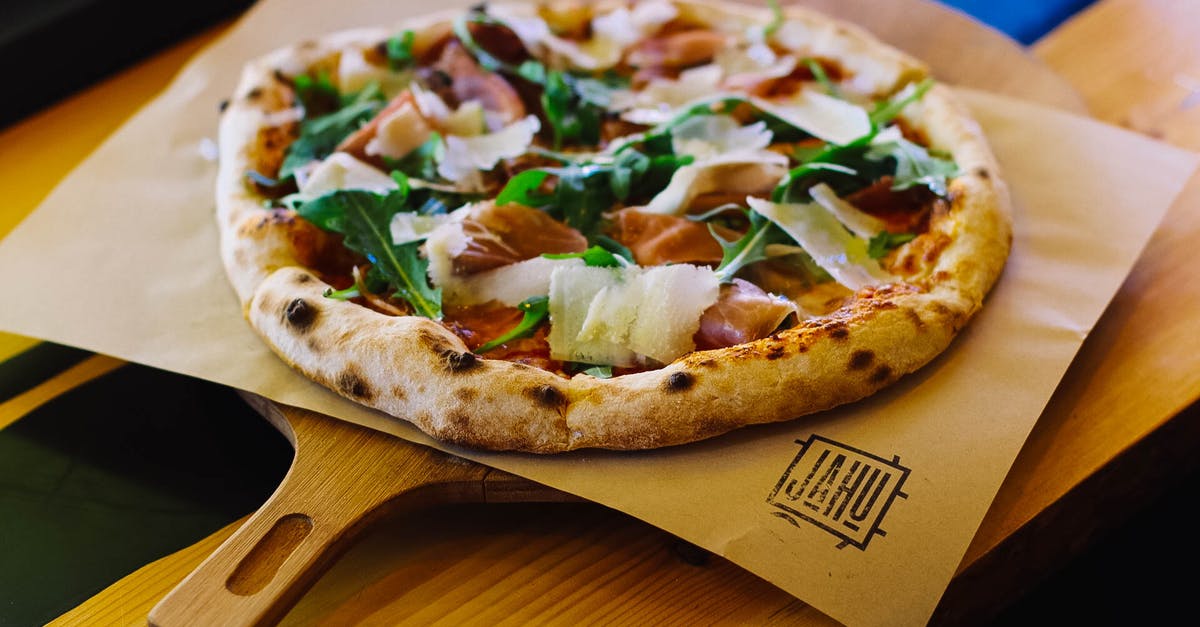Why is my pizza dough so tough?

I'm using Ramsay's recipe from the US version of his Home Cooking book. The recipe is:
4 cups bread or 00 flour
Two 1/4 oz packets of yeast
1 Tbsp sugar
1 Tbsp fine sea salt
1/4 cup EV olive oil
1 and 1/3 cup warm water for the yeast
The first few times I've made this I just used AP flour because that was what I had on hand. I bought some bread flour to see how much of a difference I noticed. With the AP flour after about 10 minutes of kneading it gets nice and smooth. But with the bread flour it was tough, rough, and just wouldn't get into a nice consistency. I added water little by little to try to get it right, but it still never became smooth.
Does one need to use more water with bread flour?
(I've only been cooking for about a year, so when things aren't consistent I get confused.)
Best Answer
If I'm understanding correctly, the crust came out okay when you used AP flour, but was more difficult to work with and came out tough when you used bread flour.
So to answer your question, yes, you do need more water when working with bread flour than when working with AP flour. From Serious Eats regarding bread flour:
Will it produce a traditional Neapolitan pizza with a super-crisp, airy, and delicate crust? No. But the pizza it does produce is great for its own merits.
Bread flour requires a little more water than most other flours to produce doughs of equivalent viscosity. Because of its high protein content, some people may find bread flour doughs a little difficult to stretch — it has a tendency to bounce back. The key is to make sure that it's well-rested before you being to stretch it.
You may find that the linked article has a lot of good information about different types of flours.
From what I've read, because bread flour is a strong flour, it requires less kneading that AP flour. And a personal observation, regardless of what I am making - biscuits, a loaf of bread, a pizza dough - when I need to add more liquid later in the process rather that at the beginning, it somehow affects the results.
I would say that if you're happy with the results using AP flour, keep using AP flour. If you want to experiment using bread flour, add extra liquid at the beginning and knead less, making sure to rest the dough before forming the crust for baking.
You may also want to try other recipes. The pizza dough (for a thin crust) I make doesn't use any sugar and a very small amount of oil. And I've read that traditional Neapolitan crust uses only flour, water, yeast, and salt.
Pictures about "Why is my pizza dough so tough?"



Quick Answer about "Why is my pizza dough so tough?"
The first reason your pizza dough gets tough is that it contains too much flour. Or in baking terms, the dough has too low hydration. If the dough contains too much flour compared to water, the result will be a dry, tough pizza dough that's hard to work with. The simple solution is therefore to add less flour.How do you make pizza dough softer?
How To Make Pizza Crust SofterWhat makes pizza dough tough and chewy?
The tough and chewy stage is set when a high protein (very strong) flour is used to make the dough.Why is my pizza dough hard? 🥌
More answers regarding why is my pizza dough so tough?
Answer 2
I read the question and Googled lots of sites. I think the problem might be one of trying to match the flour mentioned by Gordon Ramsay in the recipe to what you are buying for your use in a supermarket, online or elsewhere.
A Google of 'What is the protein content Tipo 00 flour' yields answers that are all over the protein scale I'm used to (mind, I am in the United States and never baked with flours grown elsewhere). Tipo 00 flour ranges in protein from what we call 'cake flour' to what we call 'bread flour' ('strong flour' to my friends in the UK and Gordon is from Glasgow).
Tipo 00 milled from soft white wheat is like our cake flour. Flour milled from hard red wheat is like our bread flour. It is my understanding that Tipo 00 refers to a very fine grind, not the type of wheat or its protein content.
King Arthur Flour's bread flour is milled from hard red wheat with a protein content of 12.7% (good luck trying to pin down other flour manufactures as to what kind of flour and what its protein content is!)
General Mills is very evasive! They told me their AP flour is a blend 'various flours' and its protein is a range from 9.5% percent to more than 10.5%. I stopped using General Mills flour when they had a big recall a couple of years ago and they wouldn't tell me specifically what flours they were recalling (I guess it was a blend)
Mind, recipes are ONLY guidelines! If you had good luck with the brand of AP flour you used, stop experimenting with a questionable non-specific recommendation of a wealthy celebrity who is not stating at all the specification of the main recipe ingredient and causing your pizza to be unsatisfactory! Gorden is making his wealth from the 23, or so, restaurants he owns worldwide and performing as a television entertainer, NOT cooking pizzas!
Sources: Stack Exchange - This article follows the attribution requirements of Stack Exchange and is licensed under CC BY-SA 3.0.
Images: Edward Eyer, Polina Tankilevitch, Flora Westbrook, Kristina Paukshtite
